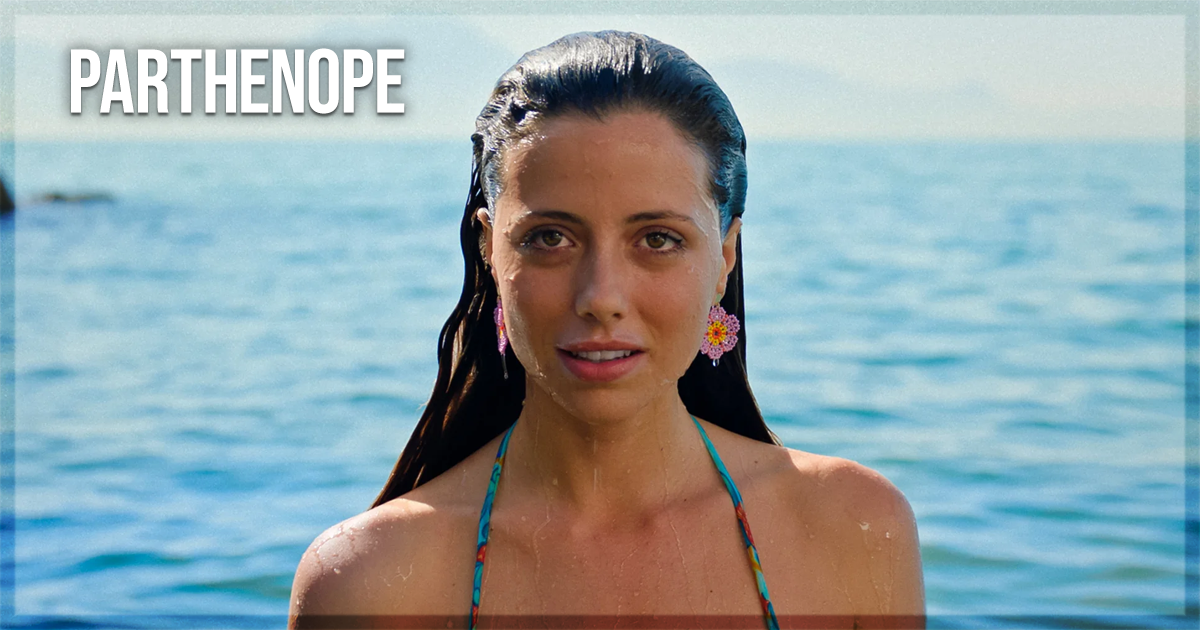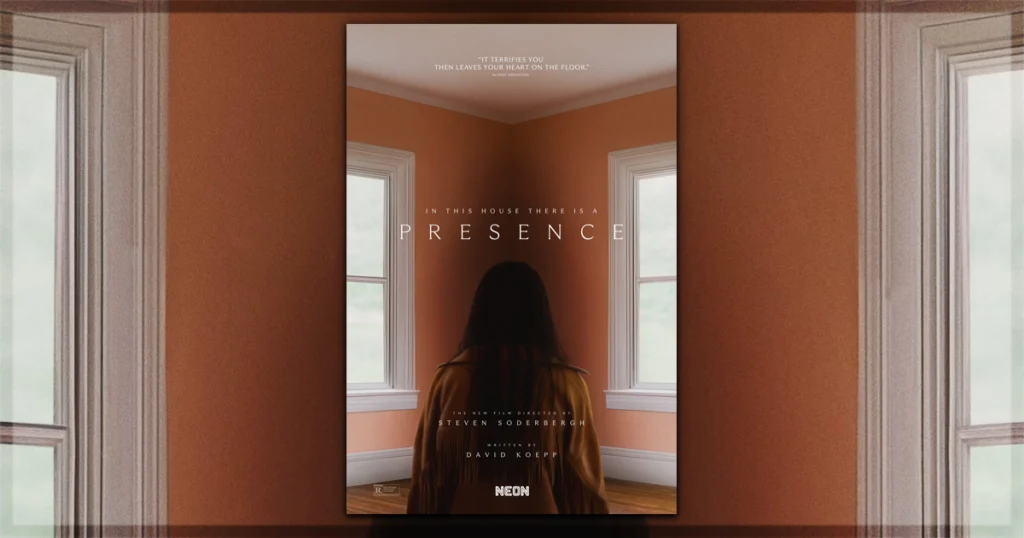At the beginning of Parthenope, the protagonist reflects on the concept of beauty, saying that it lasts only for 10 minutes and all that is left after that is just boredom. Interestingly enough, that is exactly how I ended up feeling about the entire film after the first few scenes. The inherent beauty of Paolo Sorrentino’s latest film is undeniable and yet there is nothing else to it other than its apparent beautiful visuals.
Set in Naples – as the name Parthenope would suggest – Sorrentino’s latest movie starts with the birth of Parthenope. After a twenty-year time jump, we follow her, now a young woman who attracts everyone’s attention with her beauty, as she desperately searches for happiness during various summers of her youth. With the city she was born in as a backdrop for her adventures, Parthenope eventually meets all the peculiar and memorable characters that make Naples what it is and eventually might even teach her something about herself.
For a film about Naples, Parthenope surprisingly shows very little of the city it is meant to celebrate. We do see some shots of the Neapolitan coast and the Tyrrhenian Sea, which Parthenope is literally born into, but it all remains very surface level. There is nothing of Naples, the city, but instead a lot of what Naples and Italy are idealised to be by the general public: always sunny, inevitably beautiful, and ultimately very attached to a mythological folklore of its origins. Perhaps ironically, we do see a lot more about the city even in other Sorrentino films – like, most recently, in The Hand of God to name one – than in the one that is admittedly supposed to be a celebration of the director’s hometown.
There is also nothing in this film about the history of the city at all, nor about its mythical origin, which the title Parthenope would seem to refer to. According to a Greek legend, the name Parthenope refers to a siren who jumped into the sea and eventually drowned after failing to entice Odysseus with her song. Her body arrived ashore to where Naples stands today. As such, the legend became an important part of the mythological foundation of Naples, one that the city still claims to this day and is very much alive amongst its citizens. And yet, Sorrentino’s films tells us nothing about that: there are no references to the Greek myth – or even sirens – at all or to Naples’ mythical origins neither visually or narratively.
More than anything, Parthenope is a film that has not yet decided what it wants to be. Is it a film about Naples? Is it a film about youth? Is it the story of a beautiful woman? The movie does not give us an answer in this regard, seemingly trying to be all of these things and yet failing at every single one of them. It feels like an eternal first draft that is not quite ready to see the light of day. A lot of its narratives and themes are not explored enough: Sorrentino merely suggests them without ever following through with any of them. This soon becomes frustrating and ultimately hurts the pace of a film that could have easily been a lot tighter and shorter, easily making its runtime seem double what it actually is.
The setting is equally confusing. The film starts in 1950 – as the intertitles so helpfully inform us – but quickly jumps to 1970 to follow a now twenty-year-old Parthenope for the next four years of her life, before jumping in time again to 1982 in the epilogue. And yet, if it was not for the film itself signposting with great precision exactly where we are in time, I would have never guessed. There is nothing in its narrative – or its visual – that would suggest that the majority of the film is happening in the early 1970s. On the contrary, a lot of its aesthetic seems to refer back to a much earlier period, as if Naples had stayed still and untouched by the passing of time. This is not only unrealistic, but also does not work in such a film where the years are seemingly such an important part of the narrative for the protagonists and everyone around her.
The main character is nothing but a sexualised caricature of what Sorrentino imagines women to be. Needless to say, there is nothing less realistic than a woman whose only purpose is to appear beautiful and desirable to the audience watching Parthenope. As the camera obnoxiously focuses on close-ups of Parthenope, it becomes increasingly clear how this character only exists for the pleasure of the heterosexual male viewers. Through the eyes of a man and for the pleasure of men, Parthenope can never be more than a sexual object, despite clearly being the protagonist of the film named after her.
During the entire film, all we know about Parthenope is that she is beautiful – the camera lingering on her never fails to remind us that the reason why Parthenope is the main character in this movie at all is her objectified beauty – and apparently particularly intelligent and witty. But we never really see the latter two: it is always other characters telling us – and Parthenope herself – of how smart she sees, with very little to account for it in what we actually see in the film. Both from a narrative and visual standpoint, Parthenope heavily reinforces a patriarchal narrative in the way women are positioned and portrayed in the film.
From a narrative point of view, this is particularly painful to sit through. One of the biggest issues with Parthenope is purely from a writing standpoint as virtually all the major plot points and character traits are delivered in an expositionary manner. As a result, the entire film feels flat with very little conflict or action that seem even remotely interesting to its audience. Even now, months after I have seen the film, I struggle to identify what Sorrentino’s movie was about at all due to the lack of stakes and conflict throughout the movie.
In an otherwise relatively badly acted film, Silvio Orlando and Luisa Ranieri stand out in Parthenope. Gary Oldman also delivers one of the few acting performances that are truly exciting to watch in this film, but he is in it entirely too little and for apparently no reason at all from a narrative point of view. Despite their rather limited screen presence, Orlando in particular makes every scene he is in almost worth what would otherwise – and to a certain extent still does – feel like an atrociously long film. With his incredible comedic timing and layered delivery of a complex character, Orlando as Devoto Marotta lightens up the film while at the same time delivering some of the most profound moments of the film, if not the moments that have the slightest hint of depth at all.
Ultimately, Parthenope is a film that doesn’t work either as a celebration of Naples and its mythical origins or as the story of a beautiful woman and her relationship with beauty, love, and loss. Even as someone who has never been a fan of Sorrentino’s films, this latest directing endeavour feels like perhaps one of the least successful one in his career. With very little to say about Naples – or about what Sorrentino imagines the struggle of a beautiful young woman to be – this movie does not add anything to the filmography of a director who has already explored both the themes of youth and Naples much better in some of his previous films. Unfortunately, this one is nothing more than a glorified – and overtly long – perfume commercial in the way it uses the male gaze to objectify the protagonist in the backdrop of a beautiful – but highly idealised – Naples we only catch glimpses of.
Parthenope will be in theaters on February 7, 2025.
Learn more about the film, including how to buy tickets, at the official website.


